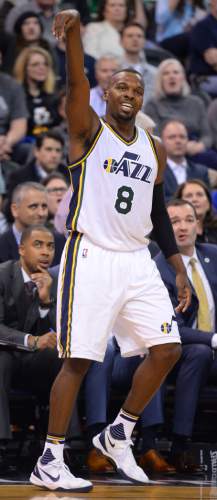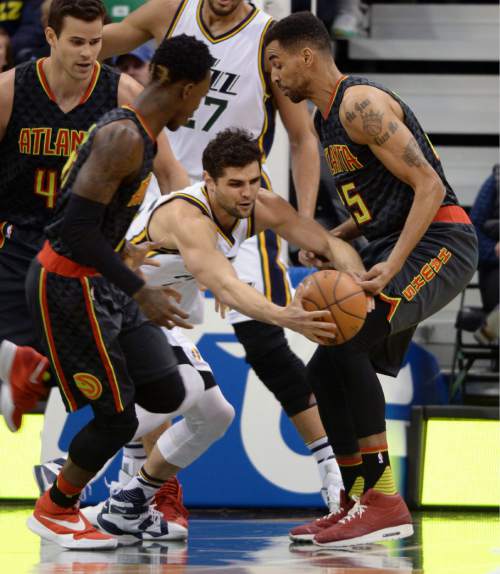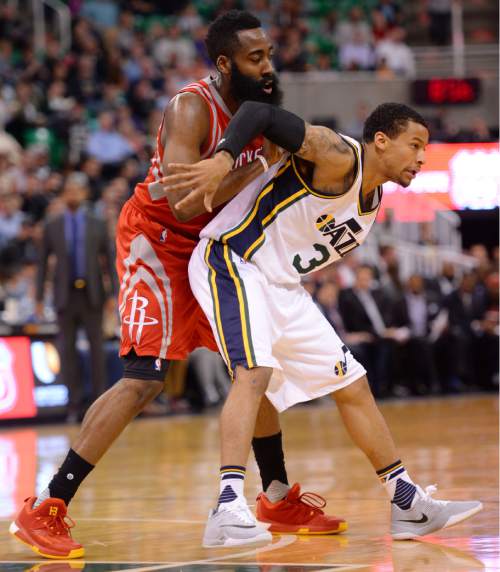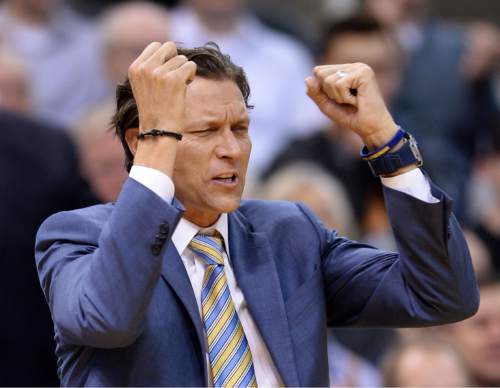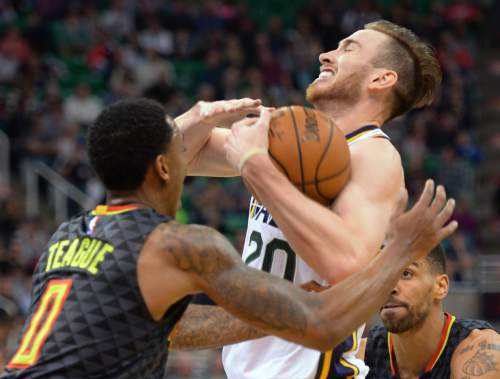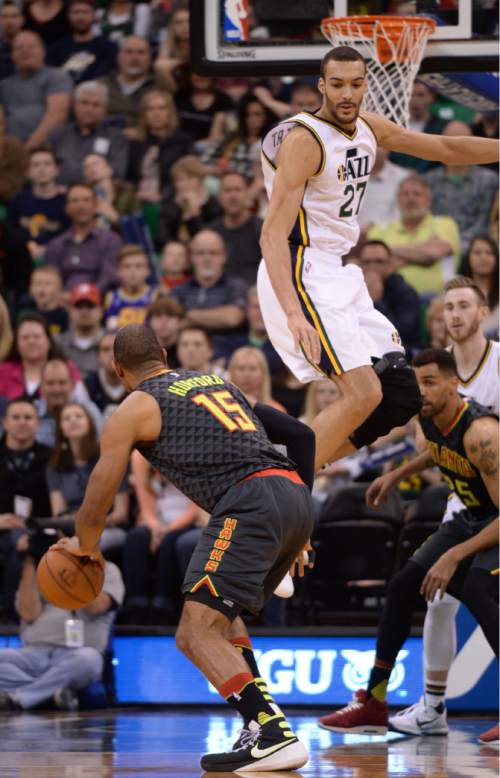This is an archived article that was published on sltrib.com in 2016, and information in the article may be outdated. It is provided only for personal research purposes and may not be reprinted.
A couple of short weeks ago, the Jazz looked fine.
They appeared as though they had beaten back the monsters of tough luck and bad karma, having taken and weathered their double-barreled shots of lumps and storms and, just as importantly, gotten almost whole again, even with Alec Burks still out and Dante Exum out for good. Somehow, they had managed to hang at or near .500, with the promise of better health and cohesion through to the regular season's finish, despite a more rugged schedule in the final weeks. The playoffs seemed a real possibility, nearly a probability.
Now, the Jazz don't look so fine.
They look discombobulated and frustrated. They've lost seven of their last eight, and that's not the worst of it. OK, that is the worst of it, but bad, too, is the way in which they've lost. They've missed open shots. They've chucked the ball around the floor as though it were a cache of nitroglycerin. They've not executed to the level of Quin Snyder's liking. They've played beneath themselves, not all the time, but too much of the time. The rest of it, they've played even with themselves, which hasn't been high enough. The growth that had been so apparent with this young team has turned, here and there, to vapor.
They made a move for additional help at point guard, acquiring Shelvin Mack, which, while not being any kind of landmark deal, seemed like a decent idea at the time. But Mack hasn't brought the cheese. The Jazz are 3-9 since he was inserted into the starting lineup, and Raul Neto and Trey Burke were dropped down a notch.
Something doesn't seem right since then.
A lot of things.
By the numbers alone, Burke should be the starter at point. There are whispers, though, that there are reasons beyond what happens on the court that Burke is not the starter.
Blaming Mack for the Jazz's bump and skid would be unfair and erroneous, but it causes one to wonder if the very thing that Dennis Lindsey has tried to run away from — a disruption of chemistry — has stirred into the club's mix. Maybe the disruption was already there.
Without Exum, point guard has been a problem all season, at both ends.
The results, as measured in wins and losses, have worsened now.
Mack was the third-string guy in Atlanta. Raul Neto, a rookie, was nobody's star in Europe. The Jazz moved up in the draft a couple of seasons back to get Burke, but …
Frequently, especially in clutch situations, the Jazz try to initiate their offense through Gordon Hayward. While Hayward has been a highlight of this season, with his increased presence on the floor, his increased sense of leadership, his increased scoring, there are occasions when he looks straight beat at the end of games. He looks tired. He looks like he's trying to do too much, like he's being asked to do too much. He looks like he's dribbling and passing the ball with Pennzoil dripping from his hands. He looks as though he could really use a quarterback to help set him up for the sort of success he's capable of providing.
But not by himself.
Over the past 13 games, the Jazz are minus-55 in turnovers. They have committed a total of 206 turnovers. Against Atlanta the other night, they fumbled up 20. Against the Warriors, they fumbled up another 18.
Ball security appears to be a problem.
Also troubling is the recent play of Rudy Gobert. The man who emerged as such a force toward the end of last season, this time around, after suffering a knee injury early on, has shown some flaws. He's still the best rim-protector in the NBA, and that's significant, that's a huge plus, and will go on being exactly that.
But opposing coaches are pretty smart. They seem to have figured a few things out with Gobert. First, when he catches the ball up top, instead of defenders dropping completely off him, as they often do with non-perimeter shooters, some are crowding him, causing him to turn the ball over. At the other end, teams are either drawing Gobert out of the lane, sometimes with bigs who can shoot, or they drive and kick to spot-up shooters, a strategy that renders Rudy less effective.
Finally, the Jazz still need more shooters. Who doesn't, right? But there are times when an objective observer watches what the Jazz are doing, attempting to pass and pass and pass some more, all to set up an open look, and when that look comes, there is no payoff with the snapping of the net.
It's likely not as bad as what it has seemed over the past couple of weeks. "I don't think it's a question of regrouping," Snyder said. "It's just a point in the year when we need to play well." The Jazz are still a young team requiring additional growth. But there are holes that need to be fixed. You know it, I know it, the Jazz know it.
I'm surprised, a bit, by their situation. You're perhaps surprised. Maybe the Jazz are surprised: The playoffs are now much in doubt.
GORDON MONSON hosts "The Big Show" with Spence Checketts weekdays from 3-7 p.m. on 97.5 FM and 1280 AM The Zone. Twitter: @GordonMonson.


